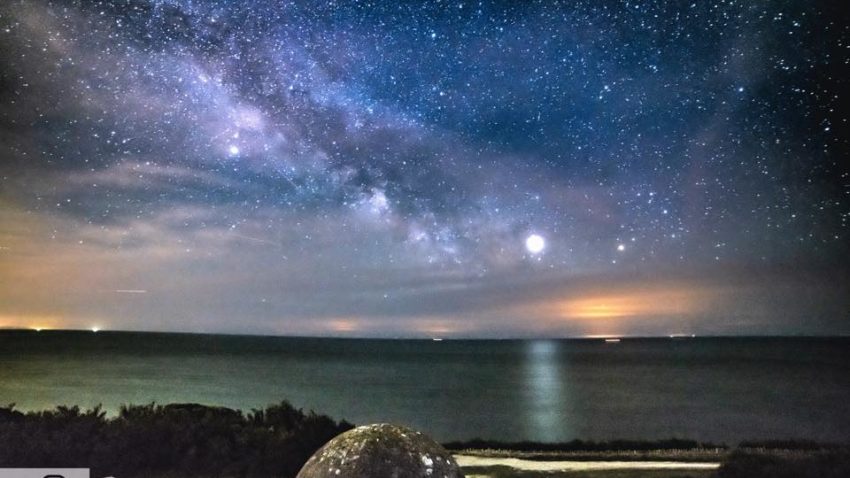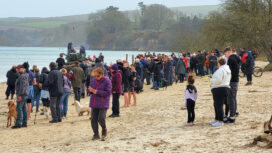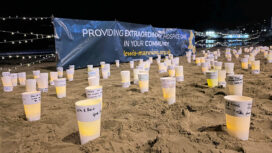With light pollution an increasing environmental issue, residents are being encouraged to turn their eyes to the heavens over the coming week and count stars to help assess the extent of the problem in Purbeck.
While Swanage’s astronomy hotspot at Durlston Country Park is currently not hosting events due to lockdown, budding stargazers still have the chance to take part in the Campaign to Protect Rural England’s (CPRE) Star Count challenge.
It is asking people to count the stars overhead in the Orion constellation between Saturday 6th February and Sunday 14th February 2021 to help study trends in light pollution.
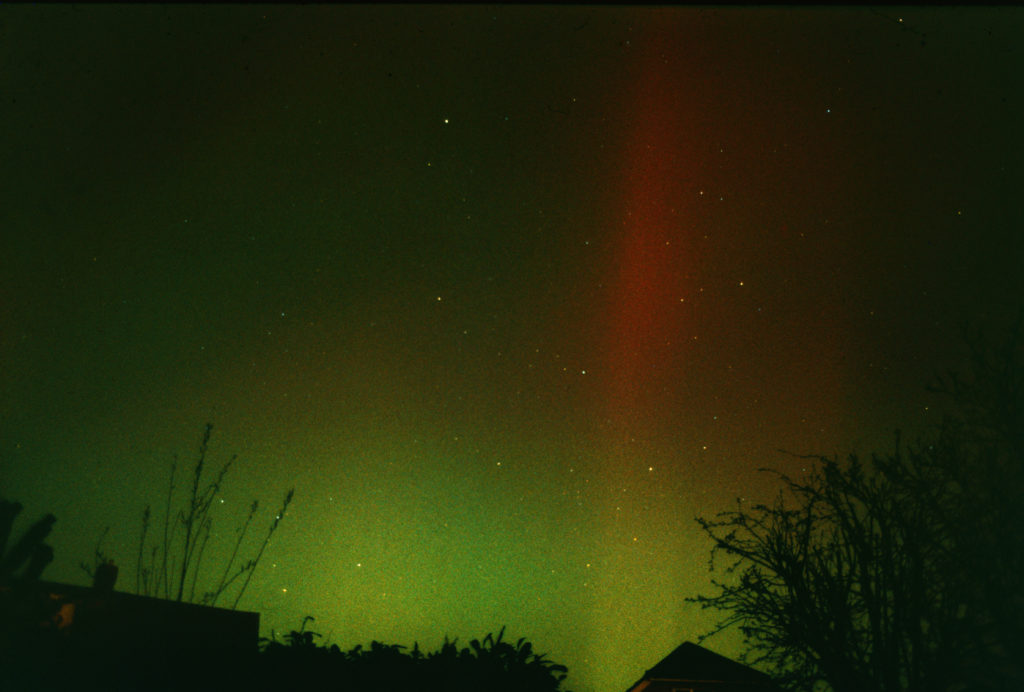
Local stargazing
The rural areas surrounding Swanage are prime spots for stargazing, not only thanks to the clear country skies, but also as the location of Wessex Astronomical Society’s observatory in Durlston Country Park.
Under normal circumstances, the observatory would host events for members of the public, but under lockdown these are restricted to Zoom events with various speakers.
Alan Jefferis, who manages the observatory on behalf of the Wessex Astronomical Society, said:
“Around Swanage and Purbeck there are some excellent dark sky areas but there are some places where there is still lots of unnecessary stray light. So the most useful contribution people can make would be to make a count from their own home, to give a representative overall measure. They should give their eyes time to adapt to the dark – for at least 10 minutes, before gazing up to the stars.”
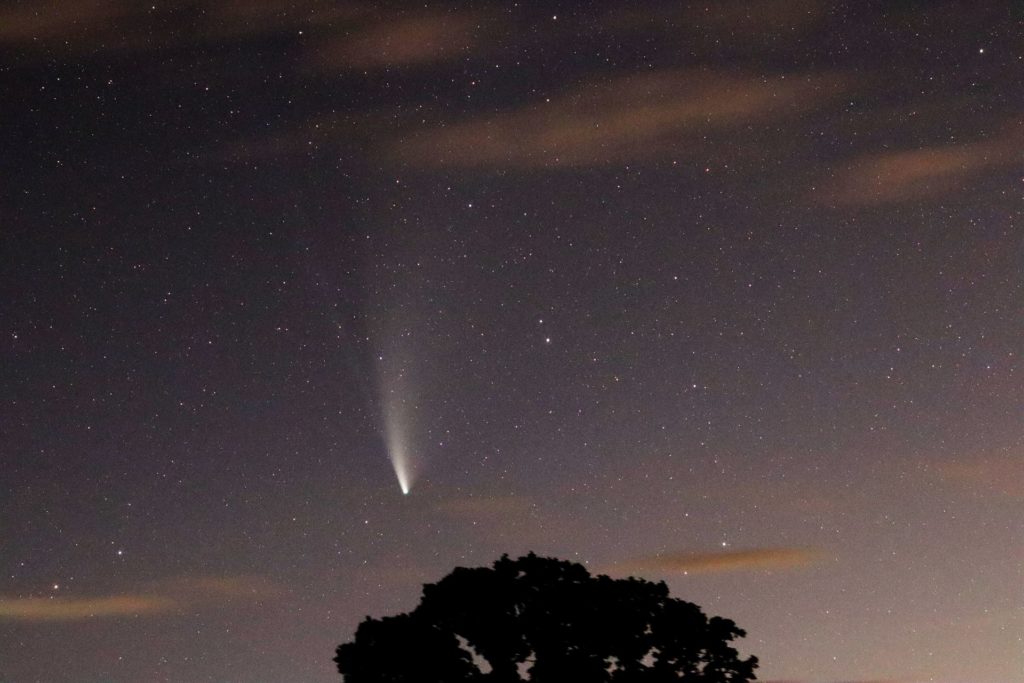
Behind the Star Count
The CPRE is collaborating with the Royal Astronomical Society’s Commission for Dark Skies to assess the levels of light pollution across the country.
Dorset resident Bob Mizon, UK coordinator of the British Astronomical Association’s Commission for Dark Skies explained:
“Since the 1950s we have gradually lost our heritage of the night sky over many places in the UK to poorly designed and carelessly aimed lighting.
“Report the quality of your night sky to help those campaigning for the best view of our universe we can achieve above a carefully lit environment. Nature needs the night and we all need a view of the stars to help define our place in the universe and what our lives are really about.”
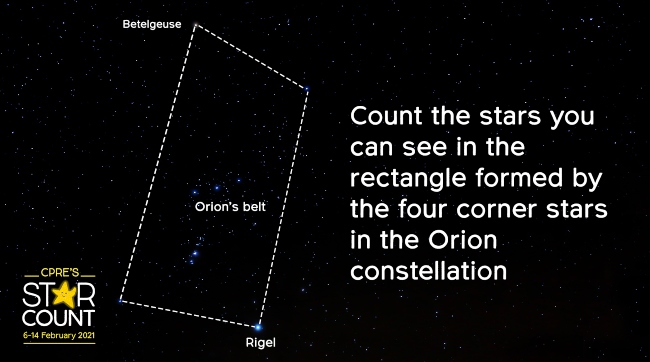
How to take part
Anyone who wants to participate in the Star Count should pick a night between the 6th February and 14th February 2021 and check the weather forecast beforehand to be sure of a clear night sky.
Start after 7 pm when it is completely dark and locate the constellation of Orion – which can be identified by its ‘belt’ of three stars in a row.
With the naked eye, count all the stars within the four corners of the constellation.
To input your data, sign up on the CPRE’s website for the count.
CPRE Star Count is “important”
Bob Mizon added:
“Turning back the tide of light pollution brings darker night skies and improvements to the well-being of humans, wildlife and the environment. In its three decades of working with the CPRE towards these goals, we have seen increased public and parliamentary awareness of the importance of our view of the universe above.
“The CPRE Star Count is an important part of this work, especially in these abnormal times when we have a chance to see whether changes in our activities are having any positive effect on the atmosphere and our view of the night sky.”
More information
- To sign up for the Star Count and to find out more about how to take part, visit the CPRE’s website.
- More photos of starlit skies can be viewed on Will Lowe’s website
